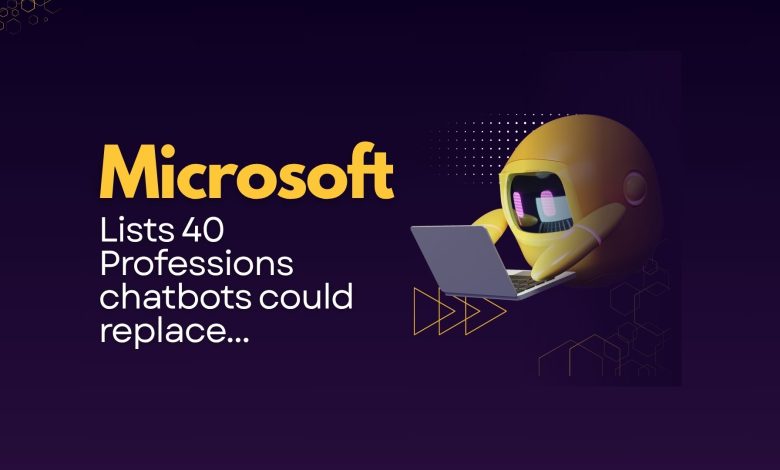Microsoft Report Reveals 40 Jobs AI Might Replace

Is your profession on the chopping block? A recent Microsoft study sheds light on jobs AI might replace, highlighting how generative AI tools are transforming the workplace. With rapid advancements in AI, the line between human skills and machine capabilities is blurring—especially for roles that rely heavily on information processing and communication.
Who’s Most at Risk?
Microsoft’s analysis, based on over 200,000 anonymized Copilot chatbot interactions in the U.S., ranked professions by their likelihood of being impacted by AI. At the top of the list are:
- Interpreters and translators (AI overlap score: 0.49)
- Historians (0.48)
- Passenger attendants (0.47)
- Service sales representatives (0.46)
- Writers and authors (0.45)
- Customer service executives (0.44)
- CNC tool programmers (0.44)
- Telephone operators (0.42)
These roles are just the beginning. Others on the list include ticket agents, telemarketers, radio hosts, editors, PR professionals, and data scientists. The scope of jobs AI might replace spans industries—from tech and media to hospitality and education.
Why These Professions Are Vulnerable to AI
The study suggests that jobs with high levels of repetitive tasks—such as drafting emails, summarizing reports, or handling FAQs—are easier for AI to automate. Tools like Microsoft Copilot and ChatGPT are already taking on such responsibilities in customer service, sales, and content creation.
However, Microsoft clarified that this doesn’t mean these roles will disappear entirely. Instead, AI is more likely to reshape than replace. How these changes play out depends largely on how quickly professionals adapt and incorporate AI into their workflows.
Is AI a Threat or an Opportunity?
While the thought of jobs AI might replace can spark fear, many experts believe the rise of AI presents opportunities too. By offloading mundane tasks, professionals can focus on creativity, strategy, and problem-solving—areas where human intuition still reigns.
Some analysts see this shift as a new industrial revolution for white-collar work. Others warn that without proper reskilling, job displacement could widen inequality.
How You Can Stay Ahead
The key is to adapt, not panic. Whether you’re a writer, analyst, or customer support agent, understanding how AI tools work and using them effectively can make you more valuable, not obsolete.
Explore internal guides such as How to Work With AI, Not Against It advancements through sources like Microsoft Copilot Official Site.
Final Thoughts: The Future of Work Is Changing
The list of jobs AI might replace serves as a wake-up call, not a death sentence. While some tasks are clearly at risk, the broader picture is one of evolution, not extinction. Embracing change and staying updated on new tools will ensure you’re part of the transformation—rather than left behind by it.




